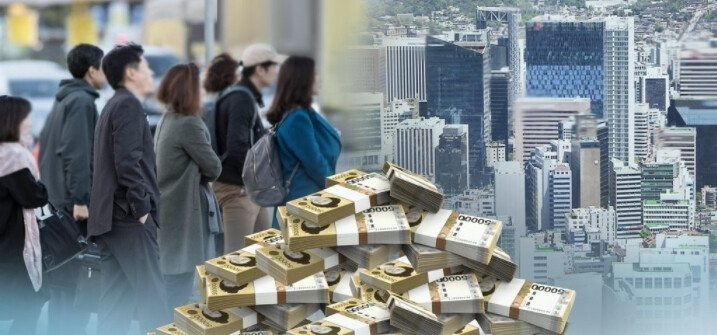
Seoul, South Korea – Despite a remarkable surge in South Korea's Gross National Income (GNI) over the past seven decades, many South Koreans are feeling a growing disconnect between the nation's economic prosperity and their personal finances.
According to data released by the Bank of Korea on Monday, South Korea's per capita GNI soared from a mere $67 in 1953 to a staggering $36,194 in 2020, marking a 540-fold increase. This represents an annual average growth rate of 9.4%.
However, the growth in household disposable income (PGDI) has failed to keep pace. PGDI, which measures the amount of income households have left after taxes and social security contributions, increased from $482 in 1975 to $19,498 in 2020, representing an annual average growth rate of 8.0%.
The ratio of PGDI to GNI has also been on a downward trend. In 1975, when the statistics were first compiled, PGDI accounted for 77.5% of GNI. However, this figure has steadily declined and reached a historic low of 53.9% in 2020.
The widening gap between economic growth and household income growth has led to a growing perception among South Koreans that they are not sharing in the nation's prosperity. While the overall economy has expanded significantly, the benefits of this growth have not been evenly distributed.
"The data shows that while South Korea has achieved impressive economic growth, the average citizen has not seen their disposable income grow at the same rate," said [Name], an economist at [Institution]. "This discrepancy has contributed to a growing sense of economic inequality and has fueled social discontent."
The Bank of Korea attributed the widening gap to a number of factors, including changes in the economic structure, rising income inequality, and increasing costs of living.
To address these issues, the government and policymakers may need to focus on policies that promote more equitable income distribution, such as increasing the minimum wage, strengthening social safety nets, and investing in education and training.
[Copyright (c) Global Economic Times. All Rights Reserved.]






























